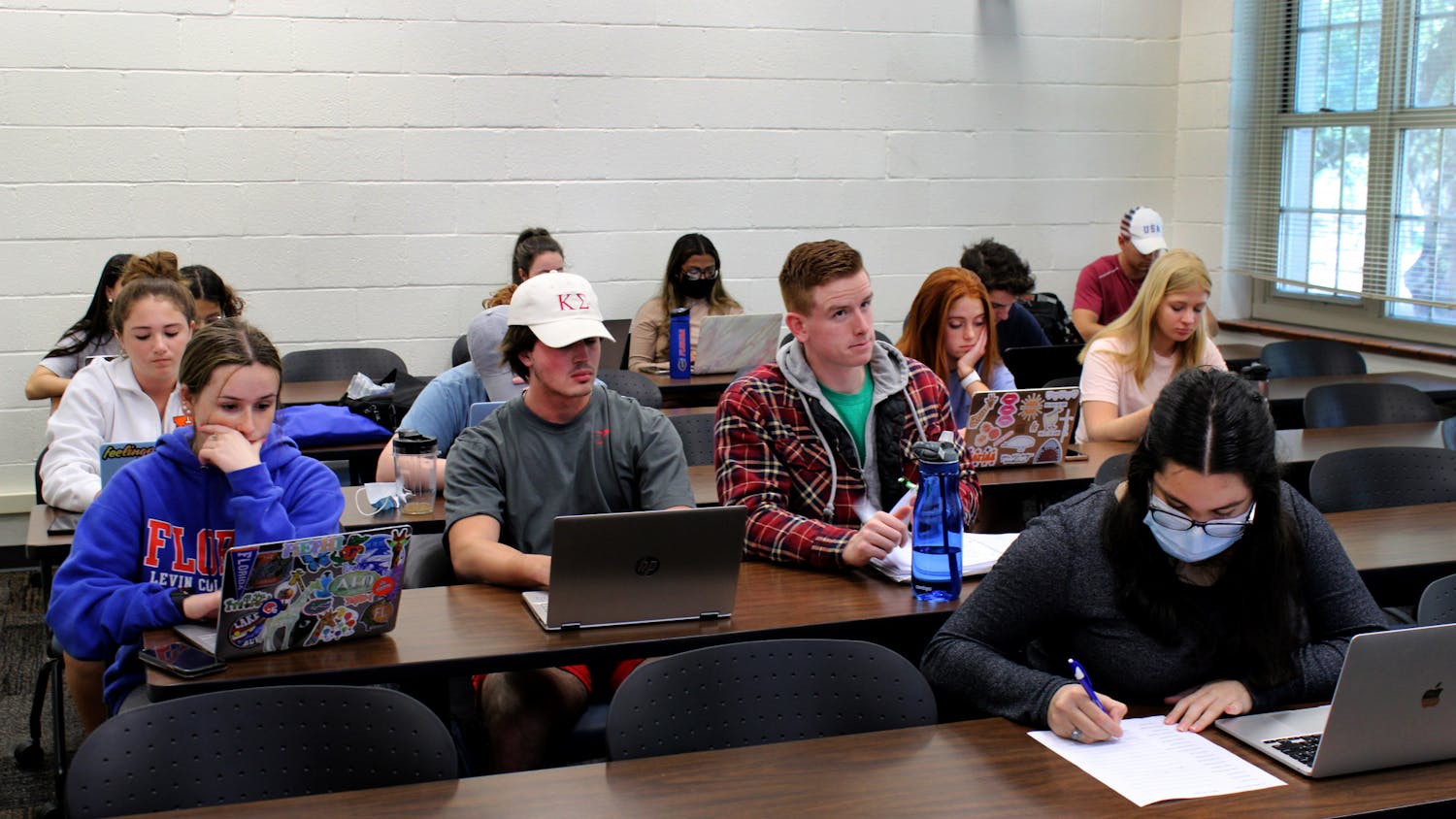As a UF student, you might take it for granted that you can visit your loved ones whenever you like. It takes but a single call to arrange a visit, a simple drive or, at most, a flight or two. Even if you are an international student, you can plan in advance to visit your family back home during summer or semester breaks.
But this is not true for all UF students. Being able to visit their families back home is far out of the imagination and reach for some international students. This is not because of financial difficulties, but instead because of their U.S. visa type.
Iranian students are subject to single-entry U.S. visas only. This means they are only allowed to enter the United States once. If they decide to leave, for any reason, they must re-apply for a U.S. visa, which means going through a long and cumbersome administrative process again that might take anywhere from a few weeks to a year.
Iranian students who dared to travel outside the U.S. during their studies here, have, many times, ended up losing a semester or two, or even their assistantship positions simply because of this unfair policy. Some even end up saying goodbye to their unfinished studies in the U.S. What makes the problem even worse is the U.S. has no embassy in Iran, an issue that forces students to travel to a third country in order to renew their visas.
This policy is a result of the bitter relationship between the U.S. and Iranian governments, which has roots in historical events, including the CIA-backed coup in 1953 that overthrew the democratically elected prime minister of Iran and the hostage-taking crisis at the U.S. embassy in Tehran in 1979 following the Islamic revolution in Iran.
Some American politicians say this is a reciprocal policy in response to the same situation Americans face if they travel to Iran.
However, this is not true. First, while it is true ran does not offer a multiple-entry visa to U.S. citizens, it does however, allow them to leave and return to the country for a period of three months without obtaining a new visa. Also, all foreign nationals, including Americans, can renew their expired visas inside Iran, a privilege that Iranian students don't have in the U.S.
The single-entry visa policy for Iranian students contradicts even what President Obama pledged in his message to Iranians on March 20, saying "...even as we continue to have differences with the Iranian government, we will sustain our commitment to a more hopeful future for the Iranian people. For instance, by increasing opportunities for educational exchanges so that Iranian students can come to our colleges and universities."
To sum up, Iranians are very family and community-oriented people, and this harsh policy subjects Iranian students at UF and all other universities in the U.S. to unnecessary stress and frustration.
Imagine not being able to visit your family for four years. Is that really fair? Only hope keeps inspiring Iranian students to stay rather than return home. Hope for obtaining competence by studying at high-standard American universities, and hope for the day when tensions between the two governments ease and mutual interests of their citizens are valued.
Seyyed Amin Terouhid is a PhD student at the M.E. Rinker Sr. School of Building Construction.





